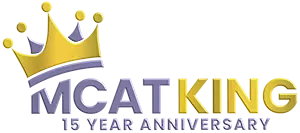Tips for Writing a BS/MD Personal Statement

Home • Tips for Writing a BS/MD Personal Statement
Among all the pieces of a BS/MD application, the personal statement often feels the most intimidating. Grades, test scores, and activities can be measured and compared, but the essay requires you to reveal who you are in ways that numbers cannot. It is your opportunity to move beyond a résumé and show the admissions committee the person behind the achievements—the future physician who is curious, reflective, and ready to commit to medicine early.
What makes this essay particularly challenging is that BS/MD programs demand more than a standard college application. You are not just applying for a seat in an undergraduate program; you are asking for early assurance into medical school. That means your statement must demonstrate not only academic ability but also maturity, purpose, and a clear understanding of what it means to enter medicine. Done well, your personal statement will assure the committee that your decision is informed, thoughtful, and grounded in genuine experience.
Understand the Purpose of the Personal Statement
The personal statement answers questions that numbers alone cannot:
- Show motivation for medicine. A 4.0 GPA proves you excel at academics, but why medicine specifically? Committees want to see that your decision is grounded in lived experiences rather than abstract ideas. For example, shadowing a physician and observing the balance between science and compassion is far more convincing than saying you “like biology.”
- Explain your fit for a combined program. You are not applying for a regular undergraduate path. You are asking for early assurance into medical school. The essay needs to show that you understand the gravity of that commitment and why this structured route fits your goals.
- Connect academics to personal growth. Achievements matter less than how you interpret them. For instance, instead of bragging about winning a science competition, explain how it taught you perseverance, teamwork, or humility.
Structure Your Narrative
While every essay will be unique, the strongest personal statements follow a logical and reflective flow.
1. Hook with a Defining Experience
Begin with a specific moment that shaped your perspective on medicine. This could be a conversation with a patient during volunteering, a challenge faced during research, or an experience within your own family. The opening should feel personal and vivid, pulling the reader into your world immediately.
2. Build with Evidence
Once you have your reader’s attention, expand with a few experiences that demonstrate your commitment. For example, you might connect shadowing a pediatrician to later volunteering at a children’s hospital, showing continuity in your interest. Keep these experiences tied to skills and qualities that physicians need: listening, adapting, problem-solving, and caring for others.
3. Reflect on Growth
Reflection is the difference between a summary and a compelling narrative. Do not stop at describing what you did. Ask yourself: What did I learn? How did this change me? How does this prepare me for a career in medicine? For instance, volunteering in a nursing home may have taught you patience and the importance of non-verbal communication.
4. Connect to the BS/MD Path
Finally, tie your story back to why a BS/MD program makes sense for you. Explain how the early assurance will allow you to explore fields outside of science, commit to service projects, or dive deeper into research without the looming stress of medical school admissions. The key is to show that you are not simply looking for a shortcut, but that you see BS/MD as the right environment for your growth.
Common Mistakes to Avoid
Generic storytelling
Phrases like “I want to help people” or “I’ve always loved science” without context make essays forgettable. Specificity is what makes your story credible.
Overly technical writing
Listing lab procedures or medical jargon without reflection makes the essay feel cold. Committees care about your insights, not your ability to write like a research paper.
Highlighting accomplishments without meaning
A long list of achievements feels like a résumé in paragraph form. Instead, focus on one or two moments that shaped you.
Lack of reflection
Saying “I shadowed 10 doctors” tells the reader nothing about what you learned. Pick one experience and dive deep into its impact on you.
Forgetting the BS/MD angle
Your application is not for a regular undergraduate program. Essays that do not address why you are ready for this accelerated, early-commitment track feel incomplete.
Tips for a Strong Personal Statement
1. Write with Authenticity
Admissions committees read thousands of essays every year. They quickly recognize when a student is trying to sound overly formal or is borrowing phrases from templates. Authenticity comes from writing in a voice that is recognizably yours. If you wouldn’t say a phrase in conversation, don’t include it in your essay. Example : Instead of writing, “From an early age, I was imbued with a deep passion for the sciences,” you could write, “I remember how excited I felt the first time I connected what I learned in class to something I saw in the clinic.” The latter is simple, personal, and believable.
2. Show, Don’t Tell
Committees don’t just want to be told you are compassionate, resilient, or curious—they want to see it in action. Use specific anecdotes to demonstrate qualities instead of stating them outright. Example : Instead of writing, “I am empathetic,” describe a moment when you sat with a nervous patient during hospital volunteering and realized how much reassurance mattered. That scene illustrates empathy far better than the word itself.
3. Balance Academics and Personality
It is tempting to fill your essay with academic achievements, but BS/MD committees already know your GPA and test scores. What they want to see is how your intellectual strengths intersect with your character. Example : If you write about excelling in a chemistry class, connect it to your curiosity about the human body or how a mentor guided you through complex problem-solving. This shows both academic skill and your ability to learn from others.
4. Focus on Depth Over Breadth
Trying to cover every activity weakens your essay. Instead, pick two or three experiences that had the greatest impact and explore them in detail. Show how they influenced your decision to pursue medicine and what they taught you about yourself. Example : If you volunteered at a nursing home, don’t just mention the hours you logged. Write about one resident you spoke with regularly, how those conversations changed your understanding of aging, and how that shaped your desire to practice medicine.
5. Draft and Revise Relentlessly
First drafts are rarely polished. Start by writing freely, without worrying about word count. Once your story is on the page, revise for clarity, reflection, and conciseness. Each revision should cut unnecessary sentences and sharpen your narrative. A strong essay often goes through five or more drafts.
6. Seek Feedback, But Protect Your Voice
It is wise to ask mentors, teachers, or advisors to review your essay. They can catch unclear phrases or missing connections. However, don’t let feedback erase your voice. If too many people edit, the essay can start sounding generic. Use feedback to refine, not to replace, your perspective.
7. Tailor to Each Program
Many BS/MD programs share similar goals, but each has its own mission. Some emphasize research, others community health, and some encourage interdisciplinary learning. Show that you have researched the program and can articulate why it fits you. Example : For a program emphasizing community health, connect your volunteering at a local clinic to the school’s mission of serving underserved populations.
8. Acknowledge the Weight of Early Commitment
Unlike a standard college essay, the BS/MD personal statement must convince committees that you are ready to commit to medicine early. This doesn’t mean claiming you have everything figured out. Instead, acknowledge the seriousness of your choice and explain why you are confident in this path.
9. Use Reflection to Stand Out
Reflection distinguishes a thoughtful applicant from one who simply lists achievements. After describing an experience, always ask: What did I learn? How did this change me? Why does it matter for my future in medicine? Example : After shadowing a doctor, instead of summarizing procedures you saw, reflect on how you noticed the doctor listening carefully to patients and how that shaped your own idea of good medicine.
10. Mind the Details
Small details (like transitions between paragraphs, grammar, and tone) contribute to the overall impression. A polished essay shows respect for the reader and care in presentation. Read your essay aloud to catch awkward phrasing. Pay attention to word limits, since exceeding them can signal carelessness.
Final Thoughts
A BS/MD personal statement is about bringing the human side of your story into focus. The committees reviewing your application want to see how your experiences have shaped your values, how you have grown from challenges, and why medicine feels like the right path for you.
The strongest essays combine honesty, depth, and reflection. They connect meaningful experiences to lessons learned, and they show that you understand the responsibility that comes with pursuing medicine at an early stage.
If you approach the essay with patience and sincerity, the result will not just impress admissions officers. It will also give you confidence that you are stepping into this next stage of your education with a story that is fully your own.




